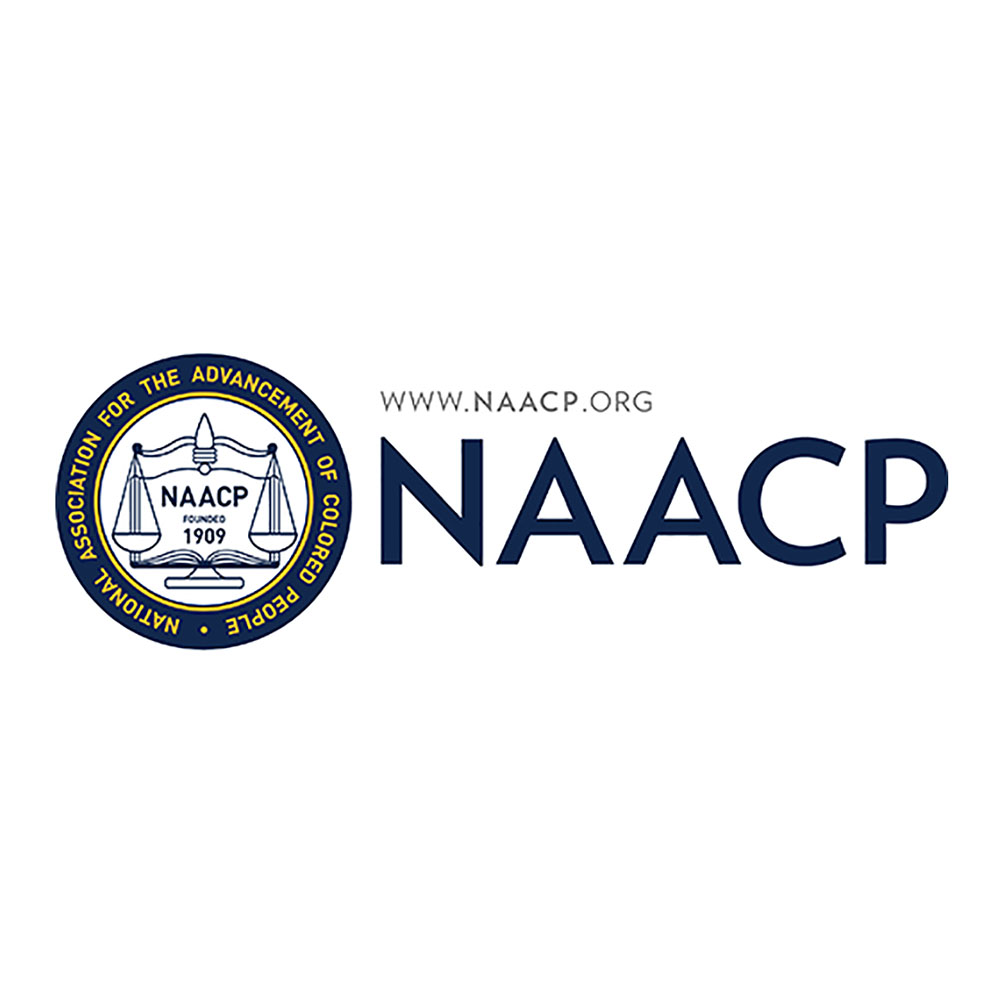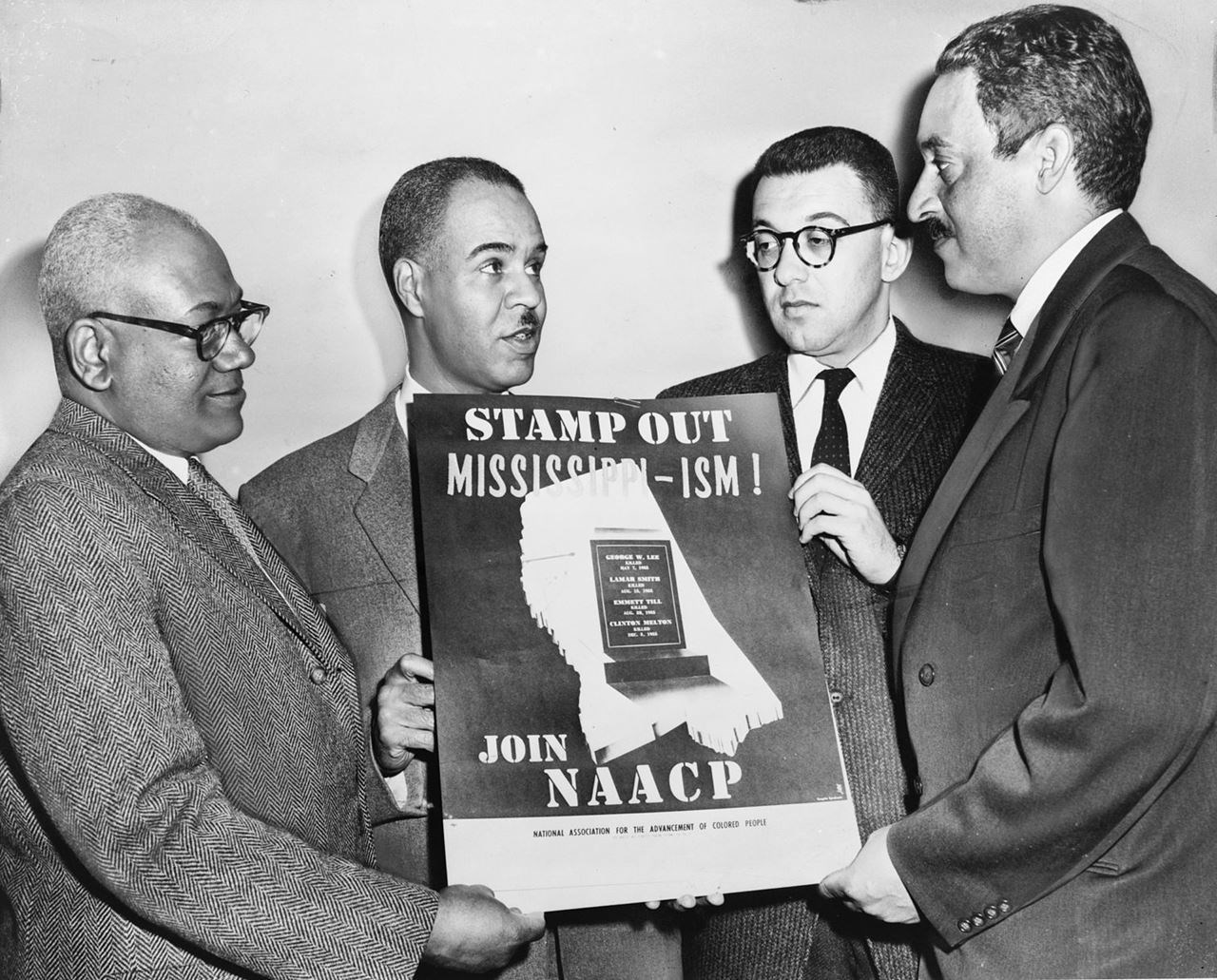Ever wondered who played a pivotal role in shaping one of the most influential civil rights organizations in American history? The NAACP, or the National Association for the Advancement of Colored People, is a name that echoes through the corridors of justice and equality. But who exactly founded this groundbreaking organization? Let's dive deep into the story and uncover the truth behind its origins.
Imagine a world where racial discrimination was rampant, and the voices of the marginalized were drowned out by systemic oppression. In the early 1900s, a group of visionaries came together to challenge the status quo and fight for justice. The NAACP was born out of this need for change, and its founders were a diverse coalition of individuals united by a common goal – equality for all.
This article will take you on a journey through time, exploring the origins of the NAACP, the key figures behind its creation, and the lasting impact it has had on society. Whether you're a history buff, a student, or simply curious about the roots of this iconic movement, this piece has something for everyone. Let's get started!
Read also:Why This Woman Isnt Paying Off Her Credit Card Bills
Table of Contents
- Biography of the Founders
- A Brief History of the NAACP
- Who Were the Key Founders?
- What Motivated the Founders?
- How Was the NAACP Formed?
- The Impact of the NAACP
- Challenges Faced by the Founders
- The Legacy of the Founders
- The NAACP in Modern Times
- Wrapping It Up
Biography of the Founders
Meet the Visionaries Behind the NAACP
Before we dive into the details of the NAACP, let's take a moment to get to know the incredible individuals who made it all possible. Here's a quick rundown of the founders:
| Name | Role | Contribution |
|---|---|---|
| W.E.B. Du Bois | Editor and Activist | W.E.B. Du Bois was one of the leading voices in the fight for racial equality. He served as the editor of The Crisis, the NAACP's official magazine. |
| Mary White Ovington | Co-founder and Advocate | Mary White Ovington played a crucial role in bringing together diverse groups to form the NAACP. Her dedication to social justice was unmatched. |
| Ida B. Wells | Journalist and Activist | Ida B. Wells was a fierce advocate against lynching and racial violence. Her work laid the foundation for many of the NAACP's early campaigns. |
These individuals, along with many others, came together to create a movement that would change the course of history. But how did it all start?
A Brief History of the NAACP
The NAACP was officially founded on February 12, 1909, in New York City. This date holds significance as it marks the centennial of Abraham Lincoln's birth, a reminder of the promise of equality enshrined in the Emancipation Proclamation. The organization was born out of the Niagara Movement, a group of African American leaders who demanded civil rights and an end to racial segregation.
From its humble beginnings, the NAACP has grown into a powerhouse of advocacy and activism. It has been at the forefront of some of the most significant civil rights battles in American history, including the landmark Brown v. Board of Education case, which ended racial segregation in schools.
Who Were the Key Founders?
The Diverse Coalition Behind the NAACP
The NAACP was not the brainchild of a single individual but rather a collective effort by a group of passionate activists. Here are some of the key founders and their contributions:
- W.E.B. Du Bois: A brilliant scholar and writer, Du Bois used his intellect to challenge racial stereotypes and advocate for equality. His writings and speeches inspired countless others to join the fight.
- Mary White Ovington: A white social worker and suffragist, Ovington was instrumental in bridging the gap between different racial and social groups. She believed that unity was the key to achieving justice.
- Ida B. Wells: Known for her fearless reporting on lynching, Wells brought attention to one of the darkest chapters in American history. Her work paved the way for the NAACP's anti-lynching campaigns.
These individuals, along with others like William English Walling and Oswald Garrison Villard, formed the backbone of the NAACP. Their diverse backgrounds and shared vision made them a force to be reckoned with.
Read also:Woman Falls Victim To 17k Sim Card Swap Fraud Despite Twofactor Authentication
What Motivated the Founders?
The founders of the NAACP were driven by a deep sense of injustice and a desire to create a better world. They witnessed firsthand the horrors of racial discrimination and violence and knew that change was necessary. Lynching, segregation, and disenfranchisement were just a few of the issues they sought to address.
For many of the founders, their motivation stemmed from personal experiences. Ida B. Wells, for example, lost friends to lynching and was determined to expose the truth. W.E.B. Du Bois was frustrated by the lack of progress in racial equality and sought to use his platform to effect change.
How Was the NAACP Formed?
The Birth of a Movement
The formation of the NAACP was a gradual process that began with the Niagara Movement. This group of African American leaders met in Niagara Falls, Canada, in 1905 to discuss strategies for achieving civil rights. Although the movement faced challenges, it laid the groundwork for the NAACP.
In 1909, a group of activists, including Mary White Ovington, William English Walling, and Ida B. Wells, came together to form the NAACP. They were inspired by the anti-lynching crusade led by Wells and the need for a more organized approach to fighting racial injustice. The organization quickly gained momentum, attracting members from all walks of life.
The Impact of the NAACP
The NAACP's impact on American society cannot be overstated. From its early campaigns against lynching to its role in the Civil Rights Movement of the 1960s, the organization has been a driving force for change. Here are just a few of its accomplishments:
- Anti-Lynching Campaigns: The NAACP's efforts to end lynching resulted in significant reductions in the number of incidents and increased public awareness.
- Brown v. Board of Education: In 1954, the NAACP successfully argued the case that ended racial segregation in public schools.
- Voting Rights: The organization played a key role in the passage of the Voting Rights Act of 1965, which eliminated barriers to voting for African Americans.
These achievements are a testament to the dedication and perseverance of the NAACP's founders and members.
Challenges Faced by the Founders
Despite their successes, the founders of the NAACP faced numerous challenges. Racial tension was high, and many were resistant to change. The founders often faced threats, intimidation, and even violence for their activism. However, they remained steadfast in their commitment to justice.
Financial constraints were another hurdle. The NAACP relied heavily on donations and membership fees to fund its operations. The founders worked tirelessly to build a strong network of supporters who believed in their mission.
The Legacy of the Founders
The legacy of the NAACP's founders lives on today. Their vision of a more just and equitable society continues to inspire generations of activists. The organization remains a powerful voice for civil rights and social justice, tackling issues such as police brutality, voting rights, and economic inequality.
The founders' commitment to diversity and inclusivity is evident in the NAACP's continued efforts to unite people of all races and backgrounds. Their belief that change is possible through collective action is a lesson that resonates today more than ever.
The NAACP in Modern Times
In the 21st century, the NAACP continues to be at the forefront of the fight for civil rights. It has expanded its focus to include issues such as climate justice, healthcare access, and criminal justice reform. The organization's use of technology and social media has allowed it to reach a wider audience and engage younger generations in the struggle for equality.
Despite the progress made, the fight for justice is far from over. The NAACP remains a vital institution in the ongoing battle against systemic racism and inequality. Its founders would be proud of the work being done today, knowing that their vision lives on.
Wrapping It Up
So, who was the founder of the NAACP? The answer is not a single individual but a diverse group of visionaries who came together to create a movement that would change the world. The NAACP's founders were driven by a deep sense of justice and a belief in the power of collective action.
Their legacy is evident in the continued work of the NAACP and the countless lives it has touched. As we reflect on their achievements, let's also consider how we can contribute to the ongoing fight for equality. Whether through activism, education, or simply standing up for what's right, each of us has a role to play.
So, what's next? Leave a comment below and let us know your thoughts on the NAACP's impact on society. Share this article with your friends and family to spread the word. Together, we can honor the legacy of the NAACP's founders and continue the fight for a better world.
Remember, the journey toward equality is a marathon, not a sprint. Let's keep moving forward, one step at a time.


